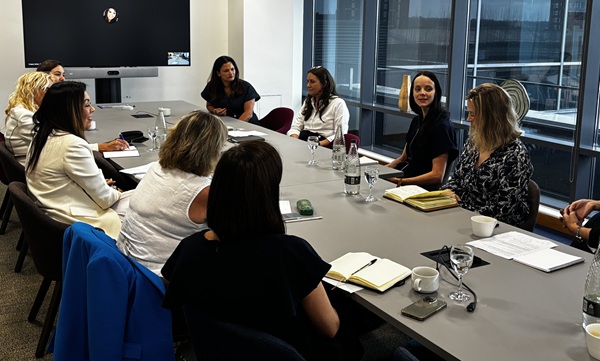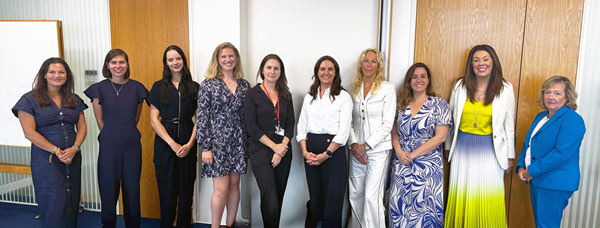
Business leaders have called on Welsh SMEs to be bold and agile and make the most of their access to talent to achieve growth.
The second meeting of The Wales Economic Forum, hosted by Business News Wales and sponsored by Barclays Corporate Banking, convened to discuss industry opportunities and threats.
Chaired by Greer Hooper, Head of South Wales Corporate at Barclays Corporate Banking, attendees agreed that recruitment and talent retention was at the heart of many of the challenges but also the opportunities facing businesses across Wales.

Attending the roundtable were:
- Francesca Carpanini, Head of Communications & External Affairs, Cardiff Capital Region
- Hannah Williams, CEO, Alacrity Foundation
- Sharon James-Evans, Principal, Cardiff & Vale College
- Luciana Ciubotariu, CEO, Celtic Freeport
- Rhian Elston, Investment Director, Development Bank of Wales
- Avril Lewis, Managing Director, Technology Connected
- Sophie Webber, Head of Ventures, Tramshed Tech
- Katie Spackman, Deputy Director, CBI Wales
- Gwenno George, Finance Director, Acuity Law.
Greer Hooper started the event with an outline of the Barclays Business Prosperity research released in June, which said that 63% of business leaders in Wales revealed that their planned level of investment is the highest it has been in the last 12 months. This put Wales at the top of all regions surveyed.
Among the key challenges discussed at the roundtable were cost pressures around the rise in employers’ national insurance contributions and the increase in the minimum wage. Attendees agreed that businesses were showing great resilience, but they reflected on how some sectors, notably retail and hospitality, have been affected by recent budget announcements.
The Barclays Business Prosperity research showed that business areas such as training and development for existing staff (41%) and marketing spend (31%) were seeing an increased investment focus for many businesses. Key productivity enablers were focused on employee engagement, with Welsh businesses outlining plans to improve work-life balance (31%), upskilling and training (30%) and encouraging a more open and supportive work environment (30%).
Skills featured high on the list of concerns for attendees, along with levels of economic inactivity. Sharon James-Evans highlighted that 20% of 24-year-olds in Wales are not in education, employment or training (NEET).
She outlined many of the initiatives which Cardiff and Vale College (CAVC) is involved with in order to boost access to education and upskilling, particularly for those from a disadvantaged background, as well as major projects such as the development of an Advanced Technology Centre at Cardiff Airport, adjacent to CAVC’s renowned International Centre for Aerospace Training.
Sharon highlighted the need to ensure that Wales’ qualification and education system is agile, and she called for more opportunities to be made available in apprenticeships.
Luciana Ciubotariu spoke of the need to raise the aspirations of young people to want to work in flagship industries which are on their doorstep, such as the energy industry in Pembrokeshire. She also asked how SMEs could be better supported to reach the talent they need.
Attendees also discussed the power of networks in supporting business owners as they started and scaled. Hannah Williams pointed out that when she had been part of the team growing Tiny Rebel – a craft brewery headquartered in Newport – she had contacted Gymshark and Grenade for support. Whilst they were in totally different sectors they still had valuable lessons for a growing business, she said.
Attendees agreed that innovations around technology are being embraced by Welsh businesses, especially where they see it could help with productivity.
Sharon James-Evans explained how CAVC was working with many employers seeking support on implementing tech solutions to productivity issues.
It is important to ensure that businesses feel empowered by innovation, especially around AI, rather than concerned by them, said Sophie Webber.
Avril Lewis said it was imperative that SMEs were supported to see the benefits for them, rather than dismissing advances in technology as “only for the big boys”.
“Leaders have to recognise that tech is a tool allowing humans to be better humans. Awareness and messaging around this is critical,” she added.
The roundtable concluded with agreement that a collective and collaborative approach across private and public sectors is essential for maximising investment opportunities, improving opportunities for young people and those looking to reskill, and supporting businesses to grow.
“We do need to be brave,” said Avril Lewis.